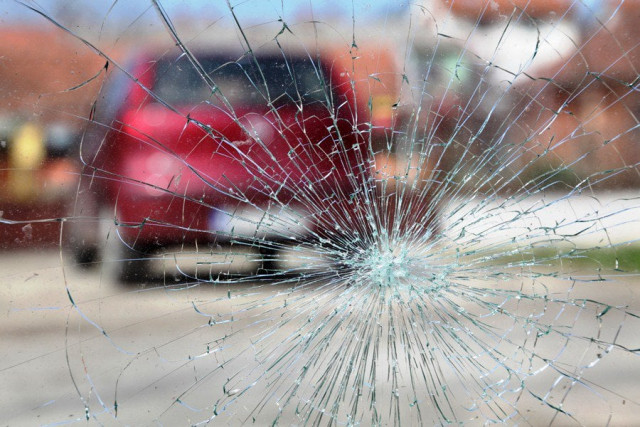When a car accident happened just in time
Suspension of cellular services causes massive inconvenience to public; businesses suffer

PHOTO: EXPRESS
Her husband came to pick her up, only to find out that his own vehicle had been disabled by the tracker company he had hired to safeguard against theft. He got through to the helpline number, but cellular services got suspended just then.
They both were stranded, but help was on its way.
This is just one of the many stories of countless people who suffered and continue to suffer as cellular services get suspended in Pakistan. It’s the government’s go-to response when it’s on ‘high alert’. It happened during 2014 when Pakistan Tehreek-e-Insaf staged a sit-in in Islamabad, though suspension of service was restricted to the Red Zone.
One new phenomenon, however, is vehicle trackers and their ability of function. A tracking system works with broadband signals. Once the car loses signals, goes out of range or is located near jammers, it gets locked in order to prevent possible theft.
This time, however, several instances were reported where car owners were left stranded when trackers installed in their vehicles stopped responding due to suspension of cellular service - an eventuality not considered by the customers or the company.
But that is not the only suffering.
Most businesses running on 3G and 4G services in Pakistan suffer due to networks’ suspension.
Authorities suspended these services to avoid an untoward incident in the city. Public voices, however, state that if they have enough technology to block signals then alternative means of terror-prevention can and should be created.
“It would have been better if they used the technology to trace the culprit instead of suspending it,” Information Communication Technology (ICT) Consultant Parvez Iftikhar argues.
Experts also say that such regular isolation from communication hurts Pakistan’s goal of digitalisation at a time when the country envisages promoting knowledge-based economy and socio-economic growth. It has seen billions in investment during the last few years, which has come on the back of mobile broadband services.
The country has made phenomenal progress in this regard with its e-commerce sector growing to $150 million. However, there is still a long way to go and plenty of challenges remaining, with services’ suspensions discouraging the digitalisation goal, experts opine.
E-payment is another area affected by suspension of cellular and internet services. Almost 13% of Pakistan’s adult population uses mobile internet while mobile companies themselves get more than 50% of their revenue by wireless internet services.
Banks are eyeing branchless banking to facilitate customers and make their own operations more efficient. Setting aside the greater picture, e-payment and credit card services are also affected by the ‘security measures’ taken by authorities leading to serious difficulties for people stuck in emergencies.
“We suspend our service due to security reasons and government directives, not our own whims and wishes,” an official of a cellular company told The Express Tribune.
Users of taxi services like Uber and Careem are also affected since they are unable to book rides due to suspension of services.
As the work-from-home culture increases in every part of the world, Pakistani companies and freelancers are also becoming a part of the trend. This section of Pakistan’s labour force is also inconvenienced by suspension of cellular services.
People can argue that suspension of mobile services for three days will not make much of a difference. While that may have been true 10 or even five years back; changing times means major business and economic losses at the micro and macro levels, respectively.
“Suspending cellular services completely is a bit of a stretch. If officials cannot come up with a smarter way then at least selective suspension should be implemented geographically and time-wise,” Pervaiz Iftikhar advises.
Published in The Express Tribune, October 1st, 2017.
Like Business on Facebook, follow @TribuneBiz on Twitter to stay informed and join in the conversation.



















COMMENTS
Comments are moderated and generally will be posted if they are on-topic and not abusive.
For more information, please see our Comments FAQ